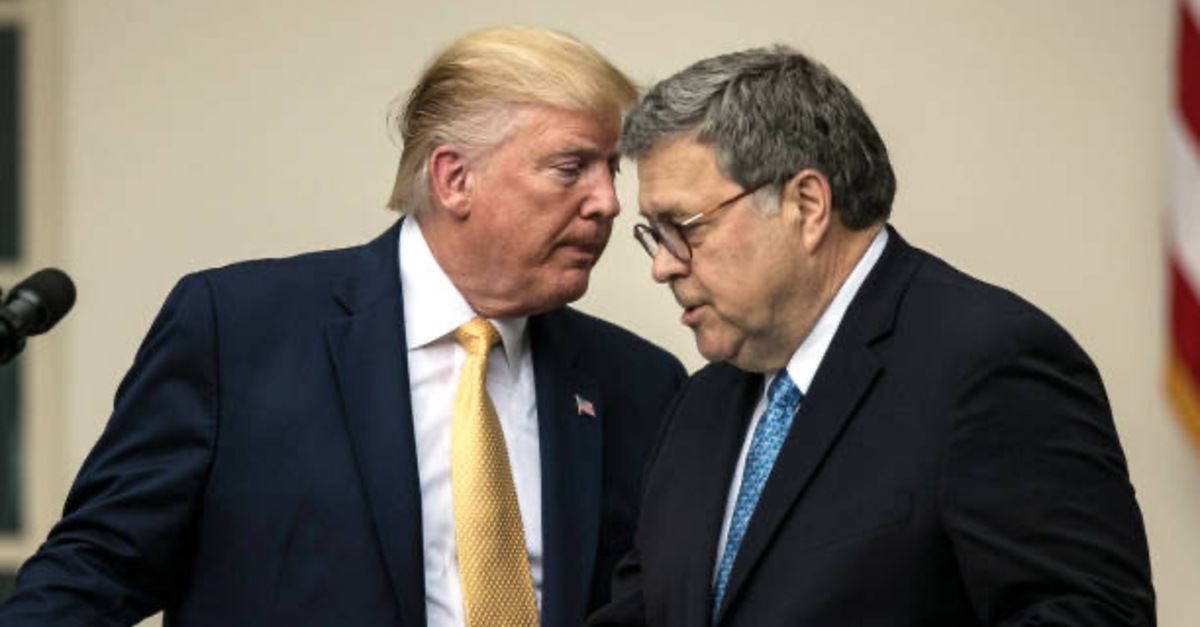
In the immediate aftermath of the Watergate scandal, a bloc of lawmakers pushed for law that would have made the Justice Department an independent branch of government to prevent the president from utilizing its vast power for personal and political purposes. While the bill was eventually defeated, Harvard Law School professor Cass Sunstein suggested that the Trump administration’s politicization of the DOJ is cause enough for the current Congress to seriously consider revisiting the proposal.
Sunstein, who served as the Administrator of the White House Office of Information and Regulatory Affairs under President Barack Obama, penned an op-ed Thursday contending that President Donald Trump and Attorney General William Barr’s willingness to neglect institutional norms of DOJ independence meant it was up to the legislature to make those norms permanent fixtures.
“In the post-Watergate era, a reasonable balance has been struck. As a matter of established norms, both Republican and Democratic presidents have usually given the attorney general a great deal of room to maneuver, especially when it comes to criminal prosecutions and ongoing litigation. In other words, norms have done the work of law,” Sunstein wrote. “Under President Trump, those norms have come under severe pressure. If they collapse, there would be incalculable damage to both liberty and self-government.”
Rejecting Barr’s notion of a unitary executive, Sunstein points out that while several executive agencies are completely under the president’s control, such as the State and Commerce Departments, others, like the Federal Reserve Board and Trade Commission, are independent by law.
“The best reason to make an agency independent,” Sunstein argued, “is to reduce the likelihood that its decisions will be affected by political considerations or the president’s self-interest.”
For example, he asserted that any opportunistic president would direct a non-independent Reserve Board to lower interest rates in an election year to give the economy a boost, regardless of the economic factors or long-term damage that may result from such a decision.
“In principle, the argument for an independent Justice Department seems at least as compelling as the argument for an independent Federal Reserve Board or Federal Communications Commission,” Sunstein contended. “Consider the domain of criminal law enforcement, where the department has awesome and even terrifying power. It could take action against a president’s political enemies (‘Lock her up’). Indeed, the mere possibility that it might do so could operate as a strong deterrent to criticism of the president — and so compromise democracy itself.”
Aware that the GOP-led Senate and other factors make the notion of a fully independent DOJ an impossibility, Sunstein proposed that lawmakers at least seriously consider legislation to rein in Trump’s–and future presidents’–most destructive tendencies.
“For example, Congress might forbid presidential interference with specific categories of cases (such as pending criminal prosecutions),” Sunstein wrote. “Or it might say that the president may discharge the attorney general only ‘for cause,’ defined to allow the president a fair measure of supervisory control over large policy questions, while also ensuring that the department is legally free from illegitimate interference (as when the president tries to reward his friends and punish his enemies).”
Carrie Cordero, an adjunct professor at Georgetown Law and a national security analyst for CNN, pushed back on the proposal, saying that such measures would be too extreme.
“Seeing various proposals this morning to make DOJ an independent entity from the executive branch, do away with DNI, dismantle DHS etc.,” she wrote. “I don’t think the way to deal with Donald Trump is to help him tear down the institutions; a better approach is to strengthen them from within. Of course, leadership of the institutions matters, and his ability to circumvent Senate confirmation for important positions and traditional Senate deference on nominations is an area that needs some serious attention.”
[image via The Asahi Shimbun via Getty Images)